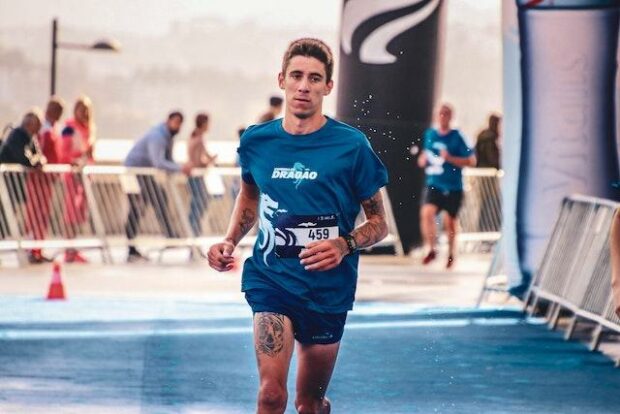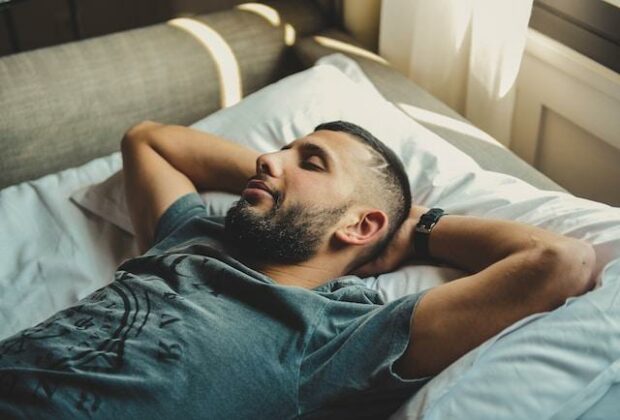The Role of Orthopedic Pillows in Enhancing Sleep Recovery for Athletes
Sleep recovery is a critical aspect of maintaining optimal athletic performance. Both mental recovery and physical recovery are highly dependent on the quality of sleep a sportsman gets. A good night’s rest allows the body to heal, repair muscles, and consolidate memory, while also offering athletes the energy and focus they need to excel in their sport. With the appropriate orthopedic pillow, they can optimize their rest environment and experience enhanced sleep recovery, ultimately leading to improved performance and reduced risk of injury. Join us as we delve into the world of cushions and their potential to transform sleep recovery, providing them with the restorative rest they need to succeed in their chosen sport.

The Importance of Sleep Recovery for Athletes
Athletes rely heavily on sleep since it aids in their physical and mental recuperation, two areas that directly affect their performance. Reduced performance, an elevated risk of injury, and slow decision-making are just some of the negative outcomes associated with inadequate sleep. This section will delve into the importance of sleep recovery and discuss the various aspects of sleep that impact their performance.
Physical Recovery
During rest, the body undergoes various recovery processes that are crucial for sportsmen. These processes include:
- Muscle repair and growth: When athletes engage in intense physical activity, their muscles experience microscopic damage. Sleep provides the body with an opportunity to repair and rebuild these damaged muscle tissues, promoting muscle growth and strength;
- Hormone regulation: Sleep is essential for balancing the production of hormones, such as human growth hormone (HGH) and cortisol. HGH is responsible for muscle growth and repair, while cortisol, a stress hormone, can negatively impact muscle tissue and hinder recovery when present in excess;
- Glycogen replenishment: During rest, the body replenishes its glycogen stores, which are the primary source of energy during physical activity. Adequate sleep ensures that athletes have sufficient energy reserves for optimal performance.
Mental Recovery
Mental health and cognitive performance benefit greatly from enough sleep. The mental recovery aspects of sleep include:
- Memory consolidation: Sleep plays a critical role in consolidating memories and learning new skills. For athletes, this translates to better retention of strategies, techniques, and other essential aspects of their sport;
- Decision-making and reaction time: Two other areas of cognitive performance are that lack of rest can negatively affect our decision-making and reaction time. Adequate sleep helps athletes maintain sharp mental focus and quick reflexes during competitions;
- Emotional well-being: Sleep is essential for maintaining emotional balance and managing stress. Athletes who are well-rested are more likely to effectively cope with the pressures and challenges of their sport.
Reduced Risk of Injury
Adequate sleep is also crucial for reducing the risk of injury. Sleep deprivation can lead to:
- Decreased coordination and balance: A lack of sleep can impair coordination and balance, increasing the likelihood of falls and injuries during physical activity;
- Slower recovery from existing injuries: It is essential for the healing process. Athletes who do not get enough sleep may experience a slower recovery from existing injuries, prolonging their time away from training and competition;
- Weakened immune system: Sleep deprivation can weaken the immune system, making athletes more susceptible to illness and infection, further hindering their performance and recovery.
Sportsmen should prioritize sleep recovery because it has far-reaching effects on their health, mood, and productivity. They can improve their performance and success in their chosen activity by prioritizing rest and creating an appropriate environment to maximize recovery and reduce the chance of injury.
Orthopedic Pillows as a Way to Improve Sleep Recovery
Pillows like this one https://nygex.ie/p/contour-orthopedic-memory-foam-pillow-for-neck-pain/ aim to minimize pressure points, promote better sleep posture, and maintain the natural curvature of the spine, leading to improved sleep quality and enhanced recovery for athletes. By selecting the appropriate orthopedic cushion, athletes can maximize their recovery, leading to better performance and reduced risk of injury.
When selecting a pillow, athletes should consider several factors, including sleep position, personal preferences, and any material sensitivities. Side sleepers may benefit from a contour or cervical cushion, while back sleepers may find a lumbar or wedge pillow more suitable. Stomach sleepers, although not recommended due to potential strain on the neck and spine, may find a thin, soft pillow to be the most comfortable option.
Sleep trials, consulting with a professional, and reading reviews and recommendations can help guide the decision-making process. Athletes should also consider any material sensitivities or allergies when selecting a cushion, as some materials may cause irritation or discomfort.
Benefits of Orthopedic Pillows for Sportsmen
Orthopedic pillows have gained popularity among sportsmen due to their potential to enhance sleep recovery by providing proper spinal alignment and targeted support for the head, neck, and shoulders. Here are the various ways in which pillows can contribute to improved sleep recovery:
Provide Optimal Support and Relief for Neck Pain
Memory foam pillows are specifically designed to provide optimal support and relief for neck pain, making them an excellent choice for athletes. The unique properties of memory foam ensure that the cushion maintains its shape throughout the night, preventing the development of pressure points and reducing the strain on the neck muscles.
For athletes who experience neck pain, using a pillow can help alleviate discomfort and promote better sleep quality. Proper support for the neck is crucial in maintaining spinal alignment, which is essential for preventing further pain. Additionally, the use of a cushion can help reduce muscle tension and stiffness, allowing athletes to wake up feeling refreshed and ready for their training sessions or competitions.

Spinal Alignment and Sleep Posture
A crucial aspect of sleep quality, particularly for athletes, is the maintenance of proper spinal alignment during sleep. Pillows can significantly enhance sleep quality by ensuring proper spinal alignment, reducing pressure points, and supporting various sleep positions. By preventing poor sleep posture and maintaining proper body alignment, they can help reduce the risk of injury associated with improper sleeping positions.
Targeted Support for Different Sleep Positions
Athletes, like any other individuals, have different preferred sleep positions, including side sleepers, back sleepers, and stomach sleepers. Pillows come in various designs and shapes to provide optimal support for each sleep position, ensuring that athletes receive the necessary support and maintain proper spinal alignment, regardless of their preferred sleep posture. For example, contour or cervical pillows are ideal for side sleepers, as they provide extra support for the neck and prevent the head from sinking too low or being pushed too high.
Pressure Point Relief
Pressure points can develop due to poor sleep posture or inadequate support, leading to discomfort or pain during sleep. Pillows are designed to distribute weight evenly and reduce pressure on these sensitive areas, allowing athletes to experience a more comfortable and restorative sleep.
Improved Circulation and Muscle Relaxation
Cushions, such as a wedge or knee pillows, can also contribute to better sleep recovery by promoting improved circulation and muscle relaxation. By elevating the legs or supporting the upper body, they can facilitate blood flow and reduce muscle tension, leading to faster recovery and reduced risk of injury.
Other Benefits
These pillows can also help reduce snoring, relieve sleep apnea symptoms, and minimize the discomfort associated with acid reflux. These added benefits can contribute to better overall sleep quality and improved athletic performance.
Conclusion
The importance of sleep recovery for athletes cannot be overstated. Orthopedic cushions can play a crucial role in enhancing sleep quality by providing proper spinal alignment, reducing pressure points, and offering targeted support for various positions. By considering factors such as position, personal preferences, and material sensitivities, sportsmen can choose the right pillow to maximize their rest and recuperation, ultimately leading to improved performance and reduced risk of injury. As research on the benefits of orthopedic pillows continues to grow, so too will the development of innovative designs and materials, further enhancing the potential for improved recovery. Investing in a suitable cushion is a small yet crucial step for athletes looking to optimize their sleep recovery and overall performance.
